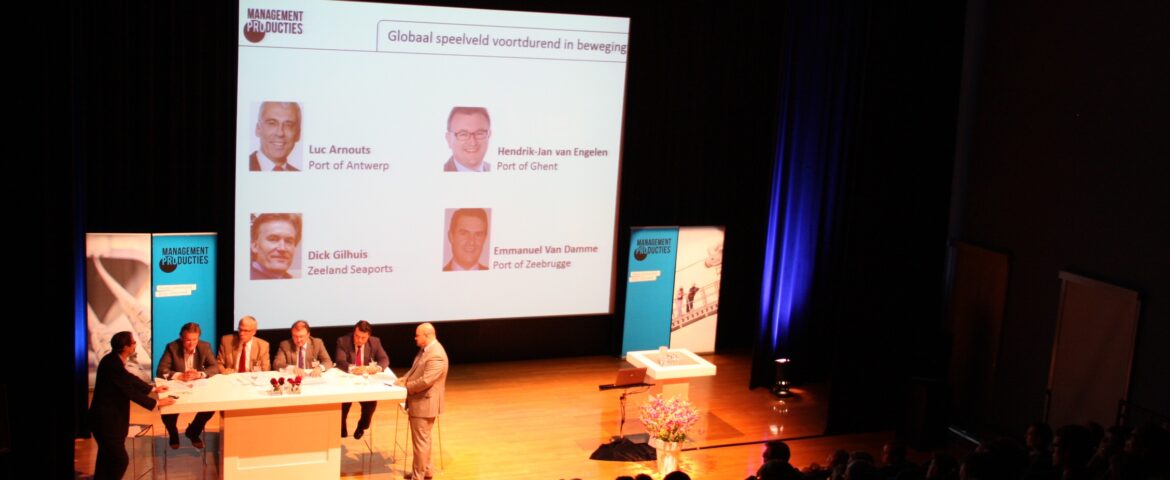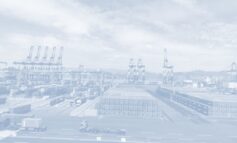PortEconomics members Peter de Langen and Michael Dooms chaired the 7th annual ‘Scheldt Conference’ with participation from the four Scheldt ports: Zeebrugge, Zeeland Seaports, Ghent and Antwerp.
The Scheldt Conference (Scheldeconferentie), held on the 3rd of October, gathers more than 100 C-suite executives and key decision makers of leading companies located in the maritime and industrial areas around the Scheldt basin.
The conference was opened through a video message by European Commissioner Siim Kallas, who stressed the important economic contribution of the Scheldt area, and addressed the need for adequate European and national port policies. (Watch the video: Opening Schelde Conferentie 2013 from Management Producties on Vimeo).
Following an opening duo-presentation of both chairmen, highlighting the ‘high velocity’ environment ports are facing today, and arguing the end of traditional port planning, Peter and Michael interviewed the four Chief Commercial Officers of the Scheldt ports in a round table format. All four agreed that the port development model is changing towards a model where cooperative new business development is more important. Topics discussed in this round table were the impact of shale gas on port development, the difficulties of developing of a bio-cluster, and the potential complementarities between all 4 ports.
After the port authorities, several key players from both the logistics and industrial sectors took the floor. Mr. Mark Geilenkirchen from APMT terminals took a most provocative stance explaining the “3 ports – 1 call” concept launched for APMT’s terminal in Zeebrugge, using collaboration with its main competitor PSA to increase both parties’ competitive position in the current competitive landscape Antwerp-Zeebrugge-Rotterdam.
The concept is a more elaborated version of the earlier launched “2 ports – 1 call” product and was premiered at the conference, leading to heavy debate on the feasibility. Mr. van Noord (SuikerUnie) and Mr. Spork (Dow) explained the concept of the ‘unbeatable beet’, a compelling story of a recent joint research project on the economic feasibility of the sugar beet-to-ethylene value chain.
This interesting study can be downloaded Here
Mr. Filip De Jongh, CEO Eurochem, explained the major transition of his company, formerly part of BASF, after it was taken over by the Russian company. Mr. De Jongh highlighted the unique competitive position of the Antwerp chemical cluster in the global landscape.
Finally, entrepreneurs from the steel industry, liquid bulk storage and container inland waterway transport, explained the state of the their markets as well as the conditions for further growth in the Scheldt region.
All participants, organizers and chairmen look back to a most successful event full of thought provoking ideas.












